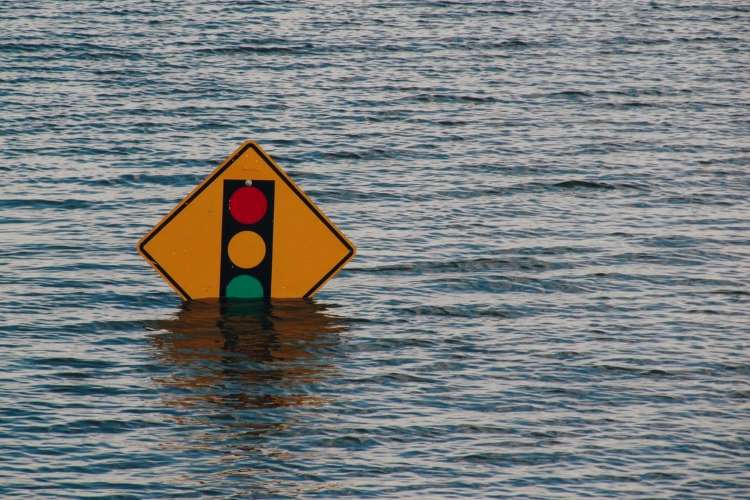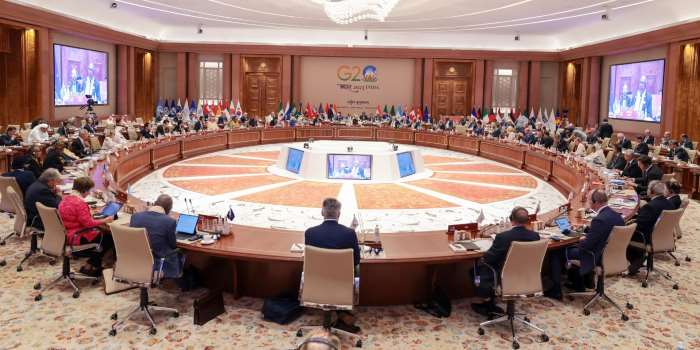
The G20 New Delhi Declaration is a significant document that could have a major impact on efforts to address climate change and sustainable development. The declaration commits to take urgent action on climate change — reducing greenhouse gas emissions and investing in renewable energy. It also commits to promote sustainable development, including by conserving biodiversity and protecting oceans.
The world is struggling to meet the challenges posed by climate change as there is not much progress in reducing greenhouse gas emissions, and developing viable alternatives to carbon fuels. Another major issue is rising income inequality and challenges to food security. The G20 leaders recognised the urgent need of green energy transition that requires significant investments and global cooperation. The Global Biofuel Alliance has been formed between governments, businesses, and international organisations to push the use of environment-friendly biofuels, marking a significant achievement towards meeting the objectives of the Paris Agreement 2015.
READ I India puts Global South on top of G20 agenda
G20 focus on climate change, energy security
The declaration also recognised the urgency in ensuring energy security for all nations, particularly the developing economies and emerging markets. This objective requires a shared mission by all nations to spur sustainable development. The leaders also pledged to ensure investments in energy efficiency and renewable energy. This pledge will require nations to remove hurdles to clean energy investments and to offer incentives to individuals and businesses for the clean energy transition.
The declaration could impact efforts to address climate change and sustainable development by raising awareness of the importance of these issues. The declaration is a public statement by the leaders of the world’s most powerful economies, and it could help to raise awareness of the need to act on climate change and sustainable development. This could lead to increased public pressure on governments and businesses to act.

The declaration could be used to educate people about the causes and effects of climate change, and it could also be used to promote sustainable practices. This could help to create a more informed public that is more likely to demand action from their leaders.
The declaration could provide a framework for cooperation. The declaration sets out a framework for cooperation between the G20 countries on climate change and sustainable development. This could help to facilitate the sharing of information and resources, and it could help to coordinate efforts to address these challenges. For example, the declaration could be used to establish common goals and objectives for climate change and sustainable development, and it could also be used to create mechanisms for monitoring and reporting on progress. This could help to ensure that countries are working together towards common goals.
It could mobilise financial resources by increasing investment in climate change mitigation and adaptation, as well as sustainable development. This could help to attract private investment in these areas, and it could also help to mobilize public funds. The declaration could be used to create incentives for businesses to invest in climate-friendly technologies, and it could also be used to provide financial assistance to developing countries to help them transition to a low-carbon economy. This could help to ensure that there are enough resources available to address climate change and sustainable development.
It could provide a roadmap for action. The declaration sets out a roadmap for action on climate change and sustainable development. This could help to guide governments and businesses in their efforts to address these challenges. The declaration could be used to identify priority areas for action, and it could also be used to set out a timeline for achieving these goals. This could help to ensure that countries are taking concrete steps to address climate change and sustainable development.
The G20 New Delhi Declaration is a significant step forward, but it is only a first step. The real test will be in the implementation of the commitments in the declaration. If the leaders are willing to work together and make the necessary sacrifices, the declaration could have a major impact on efforts to address climate change and sustainable development.
However, there are also some challenges that could hinder the impact of the New Delhi Declaration.
Lack of consensus on climate change: There is still a lack of consensus among the G20 countries on how to address climate change. This could make it difficult to implement the commitments in the declaration. Some countries may be reluctant to reduce their greenhouse gas emissions if they believe that it will harm their economy. This could lead to disagreements and delays in implementing the commitments in the declaration.
Shortage of funds: The implementation of the commitments in the declaration will require significant financing. This could be a challenge, especially for developing countries. Developing countries may need financial assistance to invest in climate-friendly technologies and to adapt to the impacts of climate change. This could require developed countries to provide financial assistance to developing countries.
Absence of political will: The implementation of the commitments in the declaration will require political will from the leaders of the G20 countries. This could be a challenge, especially in countries where there is a strong vested interest in the status quo. Some countries may be reluctant to act on climate change if they believe that it will harm their economy. This could lead to delays or even the abandonment of the commitments in the declaration.
The G20 New Delhi Declaration is a significant document that could have a major impact on efforts to address climate change and sustainable development. It is a positive step forward, but it is only a first step. The real test will be in the implementation of the commitments in the declaration. If the leaders are willing to work together and make the necessary sacrifices, the declaration could have a major impact on efforts to address climate change and sustainable development.
Despite these challenges, the G20 New Delhi Declaration has the potential to give a fresh impetus to efforts to achieve climate change and sustainable development. The declaration provides a roadmap for a sustainable future, and it is up to the leaders of the G20 countries to make it a reality.
